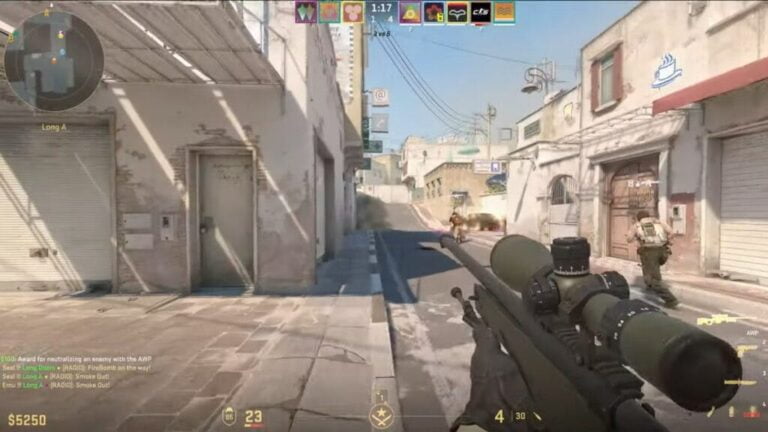What “Toxic” Means in Counter-Strike 2 and the History Behind the Term
Introduction
If you’ve ever played CS2 or any other online game, you’ve probably heard the term “toxic” being thrown around. But what does it really mean? In this blog post, we’ll explore the definition of “toxic” in CS2 and the history behind the term.
The Definition of “Toxic” in CS2
In CS2, “toxic” is used to describe players who exhibit unsportsmanlike behavior or are excessively rude to their teammates and opponents. This can include anything from trash-talking and name-calling to intentionally sabotaging the game or team. Toxic players can ruin the overall game experience for everyone involved and often contribute to a negative community atmosphere.
Toxicity can take many forms in CS2. Some players may be toxic in chat, constantly berating their teammates or opponents with insults and profanity. Others may be toxic through their behavior in-game, intentionally throwing matches or griefing their own teammates. Regardless of the specific form it takes, toxicity in CS2 is generally characterized by a lack of respect for other players and a disregard for the overall game experience.
The History of the Term “Toxic”
The term “toxic” has been used in the gaming community for many years, but its origins can be traced back to a specific incident in the game League of Legends. In 2011, a player named Christian Rivera was banned from the game for “toxic behavior.” This term quickly caught on and became a popular way to describe players who were behaving in a similar manner.
The term “toxic” has since been adopted by other online gaming communities, including CS2. In fact, the term has become so prevalent that many players use it without even knowing its origins.
The Impact of Toxicity in CS2
Toxicity can have a significant impact on the CS2 community. Not only can it ruin the game experience for individual players, but it can also discourage new players from joining the community. The CS2 community has taken steps to combat toxicity, including implementing a reporting system for toxic behavior and encouraging players to be more positive and supportive towards one another.
One of the biggest impacts of toxicity in CS2 is the effect it can have on team communication and coordination. When players are constantly arguing or insulting one another, it becomes difficult to work together effectively and win matches. Toxicity can also lead to a sense of mistrust between teammates, making it less likely that players will be willing to work together in future games.
How to Combat Toxicity in CS2
If you’re a CS2 player, there are several steps you can take to combat toxicity in the community. One of the most important is to be an example of positive behavior yourself. Instead of engaging in toxic behavior, try to be supportive and encouraging toward your teammates. This can help create a more positive atmosphere and may even encourage other players to do the same.
You can also report toxic behavior when you see it. CS2 has a reporting system that allows players to report others for abusive or unsportsmanlike behavior. If you encounter a player who is being toxic, take a few moments to report them. This can help ensure that they are held accountable for their behavior and may discourage them from continuing to act in a toxic manner in future games.
Finally, if you’re a team captain or manager, you can take steps to promote positivity and cooperation within your team. Encourage your players to communicate effectively and work together to achieve common goals. By fostering a sense of teamwork and respect within your team, you can help create a more positive gaming experience for everyone involved.
Conclusion
“Toxic” is a term that has become synonymous with unsportsmanlike behavior and negativity in CS2. While it can be tempting to lash out at other players during a frustrating game, it’s important to remember that our actions can have a significant impact on the overall community. By being more positive and supportive towards one another, we can help create a more welcoming and enjoyable gaming experience for everyone involved.
Frequently Asked Questions
What is toxicity in CS2?
Toxicity in CS2 refers to unsportsmanlike behavior or excessive rudeness towards other players. This can include trash-talking, name-calling, intentionally sabotaging the game or team, and more.
How did the term “toxic” originate?
The term “toxic” originated in the online game League of Legends in 2011, when a player named Christian Rivera was banned for “toxic behavior.” The term quickly caught on and became a popular way to describe similar behavior in other online games, including CS2.
What is the impact of toxicity in CS2?
Toxicity can have a significant impact on the CS2 community, including ruining the game experience for individual players and discouraging new players from joining the community. It can also lead to a breakdown in team communication and coordination, making it harder to win matches.
How can I combat toxicity in CS2?
You can combat toxicity in CS2 by being an example of positive behavior, reporting toxic behavior when you see it, and promoting positivity and cooperation within your team. By fostering a sense of teamwork and respect within the community, we can help create a more welcoming and enjoyable gaming experience for everyone involved.
What steps has the CS2 community taken to combat toxicity?
The CS2 community has taken steps to combat toxicity, including implementing a reporting system for toxic behavior and encouraging players to be more positive and supportive towards one another. By working together to promote positive behavior, we can create a more welcoming and enjoyable gaming experience for everyone involved.
